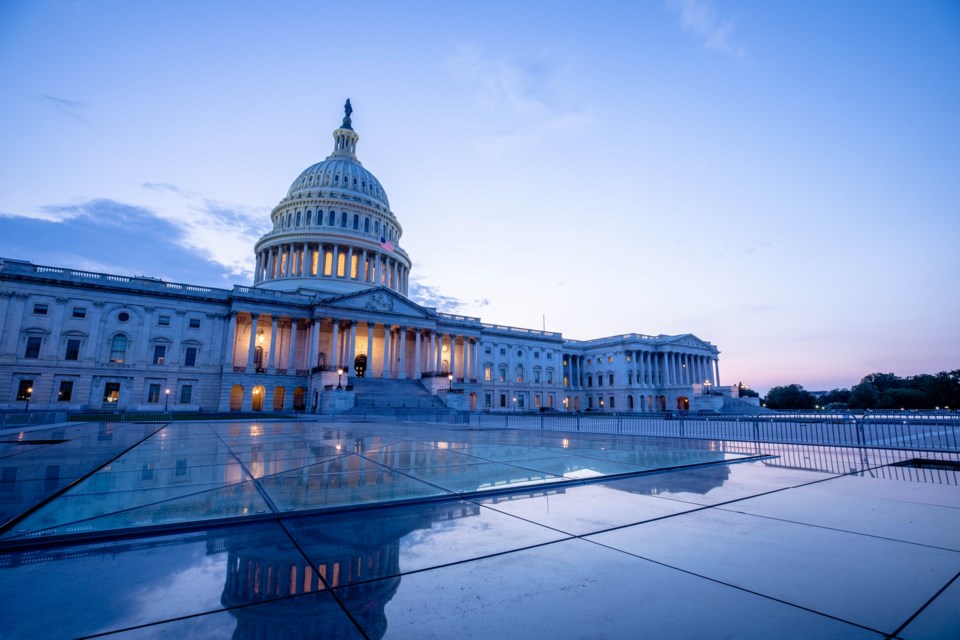Editor's note: This story was originally published by Colorado Newsline. Read the original story here.
Nearly a month after the expiration of a key federal aid program and two weeks after the U.S. Senate adjourned without passing new COVID-19 relief legislation, many Coloradans’ financial situations are growing more dire by the day, a panel of community advocates said Tuesday.
Unemployment payments have dropped sharply. Rents and mortgages are going unpaid as the threat of eviction resumes. Hunger and food insecurity are on the rise. Child care has grown scarcer and more expensive. Deep cuts to the state’s Medicaid program loom in the near future, even as enrollment surges. These were some of the conditions the virtual panel discussion addressed.
The panelists included representatives from Colorado nonprofits that focus on food security and economic issues, such as Hunger Free Colorado and Colorado Fiscal Institute. They also included members of the community who have been affected by the COVID-related economic downturn.
While state and local relief efforts have helped, they pale in comparison with what the federal government and its vast resources can achieve, advocates said. Four months have passed since Congress last passed a piece of coronavirus legislation, and after negotiations over a new aid package broke down earlier this month the Republican-controlled Senate announced it would adjourn until Sept. 8.“We are at a moment right now where Congress is the only governmental entity that can really provide the relief that’s needed for Colorado families and people across the country,” said Eliot Goldbaum, director of strategic communications for the Colorado Fiscal Institute. “The scope and scale of what we’re seeing is something we’ve never seen before.”
390,000 could be at risk for eviction
Benu Amun-Ra is one of the hundreds of thousands of Coloradans who lost a job or lost income as the COVID-19 outbreak began earlier this year. A single mother and the primary caregiver for her mother and her son, both of whom have disabilities, Amun-Ra was forced to give up her job as a Lyft driver due to unsafe conditions and a lack of personal protective equipment and health benefits.
“Losing that job put a huge hit on my income,” Amun-Ra said during the panel discussion. “But not only that, our food bank at that time, that we had relied on to fill in the gaps of our food supply, closed down due to COVID.”
Benefits provided through the Supplemental Nutrition Assistance Program have been a “life-saver,” Amun-Ra said, but for many families, they’re not enough. More than a third of Coloradans have reported struggling to afford food in recent months, and advocates are urging Congress to include a 15% increase in SNAP benefits in a new relief bill.
“It is imperative to pass a relief package so that all families can make it through this hard time,” Amun-Ra said. “Congress needs to support people to continue to receive their benefits and to stay safe at home.”
Meanwhile, an estimated 390,000 Coloradans could be at risk of eviction in the coming months, according to the COVID-19 Eviction Defense Project. Evictions in many parts of the state have resumed following the expiration of temporary freezes at the state and local level, but housing struggles go far beyond eviction figures, said Jonathan Cappelli, an affordable-housing advocate with the Neighborhood Development Collaborative.
“Eviction filings themselves don’t really tell the full story,” Cappelli said during the panel discussion. “Because when people can’t afford their rent, they usually move out before an official eviction happens. They end up doubling up, ending up in their car or going to the street.”
Data suggests that homelessness in Denver has surged by about 30% since the onset of the pandemic, Cappelli said, and Coloradans “desperately” need additional aid from Congress to prevent that number from rising further.
“Senate and House leadership have to come together and approve a package,” Cappelli said. He and other advocates are calling for $100 billion in emergency rental assistance and a new federal eviction moratorium, both of which were included in proposed aid package passed by the Democratic-controlled House of Representatives in May.
Only three more weeks of additional payments
Many Coloradans are facing even greater financial hardship following the July 26 expiration of the additional $600 weekly unemployment payment authorized by Congress earlier this year.
Following a breakdown in talks over a new congressional aid package, President Donald Trump announced a range of executive relief measures that Democrats have attacked as flawed and insufficient. A new $300 weekly unemployment benefit authorized by Trump could be paid out to jobless Coloradans by mid-September, but for now, it will only provide three weeks of additional payments.
“We really need senators to get back to work,” Goldbaum said. “There has to be some sort of bipartisan compromise and some sort of bill that gets passed so that people who need help, who are experiencing severe hardship, can get that help.”
***
Colorado Newsline is part of States Newsroom, a network of news bureaus supported by grants and a coalition of donors as a 501c(3) public charity. Colorado Newsline maintains editorial independence. Contact Editor for questions: [email protected]. Follow Colorado Newsline on Facebook and Twitter.



